Writing in the National Interest, Michael O’Hanlon summarizes the key argument of his new book, “The Art of War in the Age of Peace,” namely that “a Biden national security strategy should be resolute in its commitment to defend the core territories, populations, polities, and economies of U.S. allies, as well as the free and open skies and oceans on which the global economy depends. However, America also needs to show restraint.”
As President Joe Biden and his team settle into their new jobs, how should they view the national security challenges facing the United States at his juncture in history? And what should U.S. national security policy seek to achieve? Four months into the new administration, it is no longer enough to be the antidote to Donald Trump’s unilateralism; a more forward-looking and visionary foreign policy framework is needed.
As for the state of the world, for some, the headlines say it all. There’s an aggressive China, a vengeful Russia, a nuclear-minded North Korea, a hostile Iran, and a disintegrating Afghanistan. All of these foreign policy problems are superimposed on top of warming climates, rising oceans and spreading pandemics. This troubling state of affairs would suggest that Biden must be hypervigilant against more threats than the nation has perhaps ever confronted at once.
In fact, while these threats are all real, and while the coronavirus will cause misery for at least another one to two years on much of the planet, there is a much happier narrative as well. The world has never been more prosperous, democratic, or — for most of us at least — safe and secure. However oxymoronic, these competing realities need to be understood correctly if U.S. foreign policy is to be rightsized for the dangers the country faces. There is clearly no basis for complacency, retrenchment, or a lowering of America’s guard (although it seems the Biden team has already made a big mistake in deciding to withdraw from Afghanistan in the hope that the dangers there will easily be contained without a small American or NATO presence). Yet at the same time, America need not overreact to each and every provocation, by China or Russia in particular. The world order is fraying a bit around the edges, but its central core remains strong. Getting this diagnosis roughly right is important if the United States is to avoid the twin but opposing dangers of overreacting and underreacting to various possible and perceived threats.
At the beginning of the Cold War, U.S. statesman and strategist George Kennan assessed that some parts of the world mattered more for American security than others. That remains true today, even if the crucial regions have evolved somewhat. Kennan prioritized Britain, western Europe, Russia, and Japan. Today, it should add mainland East Asia to the list and parts of the Middle East. But while problems that dominate many headlines today — such as issues in Ukraine, the uninhabited western Pacific islands, the Himalayan border between India and China, Syria, Xinjiang Province in China, or other remote places — are important and troubling, they simply are not as central to U.S. security.
I’ve noted in my book, “The Art of War in an Age of Peace: U.S. Grand Strategy and Resolute Restraint,” that America needs a better U.S. foreign policy. A Biden national security strategy should be resolute in its commitment to defend the core territories, populations, polities, and economies of U.S. allies, as well as the free and open skies and oceans on which the global economy depends. However, America also needs to show restraint. The Biden team will have to remember this given the domestic political pressures it is under to try to “do something” about the world’s problems. For example, the administration should be wary about any further alliance expansion or formation. The current U.S. policy of seeking to bring Ukraine and Georgia into NATO — or bringing other countries outside the strategic core of the West into formal alliance structures — should be viewed very skeptically.
America also needs to show restraint in any initiation of combat operations. Unclassified sources indicate that the Pentagon would consider rapid military escalation in the event of a crisis that involved China over the uninhabited Senkaku Islands, South China Sea land formations, or Taiwan. But such an approach would be highly dangerous. Rather, the United States should avoid drawing first blood in any superpower showdown. It should try to avoid fighting in theaters that are near the Chinese or Russian homelands and play to the strengths of those countries. It makes more sense for America to rely on asymmetric defense and deterrence, use economic and military tools, and seek to be geographically flexible in areas where it might carry out military operations. For example, if China someday blockades Taiwan in an attempt to squeeze it into submission, then America should use economic warfare and attacks on China-bound shipping in the Indian Ocean to respond rather than directly and immediately seeking to break the blockade with brute force.
Thankfully, Secretary of Defense Lloyd Austin has recently written about a concept that he calls integrated deterrence that, if suitably interpreted, may point in a similar direction of restraint for some of these types of scenarios. This conversation needs to continue.
The strategy of resolute restraint is heavily informed by the three most important data points of global security in the twentieth century — the outbreak of World War I, the outbreak of World War II, and the non-outbreak of World War III. U.S. disengagement preceded the first two data points; U.S.commitment, in the form of clear alliances and forward-deployed military forces, contributed enormously to the last. These are not just three data points in a sea of information. They are by far the most consequential things we know about modern international relations. For all of America’s flaws and mistakes, it is still “exceptional” in its ability to deter great-power war — given its size, its location, its alliance system, and the universal values that it seeks to promote even as it often falls quite short at home and abroad. There is no alternative group of countries or international organizations that can now undergird the global order with the same success.
Former Secretary of Defense Robert Gates was fond of saying that the United States had a perfect track record of predicting the next war — it always got it wrong. That is a good and sobering warning. But there is a happier flip side. When the country works toward preventing war in a given place, with strong alliances and forward-deployed American military forces, it generally succeeds. That is why wars in such places do not happen — because America did, in fact, predict the possibility of conflict and took steps to hedge against it. This is not an achievement to be trivialized or dismissed.
That said, America should not try to cover the whole Earth with a U.S. security blanket. That is especially true for areas near Russia or China. In general, U.S. military forces should be used primarily to shore up what some call the core of the rules-based global order — the basic stability of the global environment and deterrence of major war involving key existing U.S. allies or the United States. Other worthy goals, in areas such as human rights and environmental policy and the stability of more distant and peripheral parts of the world — what some might term a liberal order — should be pursued too, but patiently, and primarily with non-military means.
Executing this strategy will be difficult even if America gets the restraint part right. Notably, while it may not demand a big military buildup, it likely will require stabilizing the U.S. defense budget around its current (real) level rather than shrinking it massively as some on the Left would do or expanding it at 3–5 percent a year in inflation-adjusted terms as hawks of both political parties would prefer.
Defend existing allies and the key elements of today’s global economy, yes. But also forgo further alliance expansion, ambitious war plans, or the sense that we can somehow still do it all. Finding words to convey this mixed message in an inspiring and confident way — and, even more importantly, implementing it well — will not be easy. But if Biden is to make his mark as an important president in foreign policy, then he must attempt to do so.
The Brookings Institution is committed to quality, independence, and impact.
We are supported by a diverse array of funders. In line with our values and policies, each Brookings publication represents the sole views of its author(s).

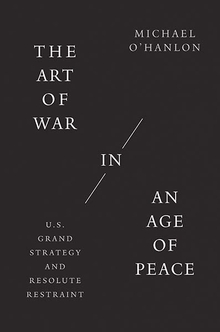
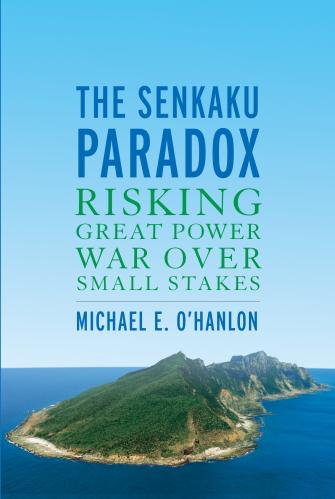
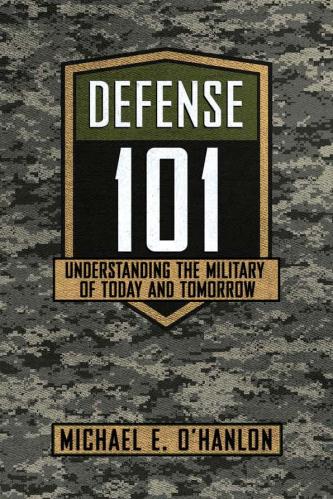
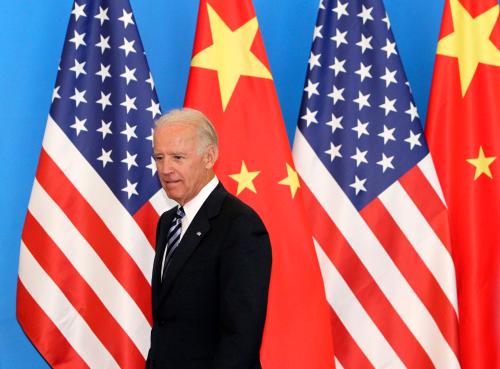
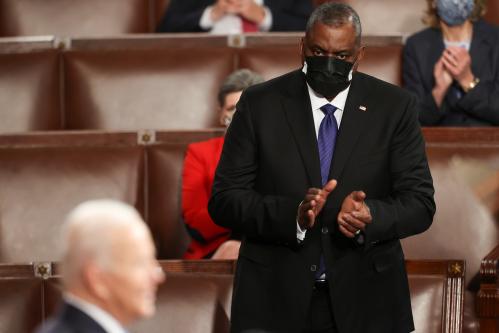
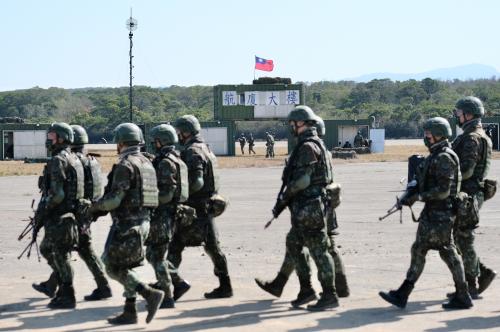



Commentary
A grand strategy of resolute restraint
May 24, 2021